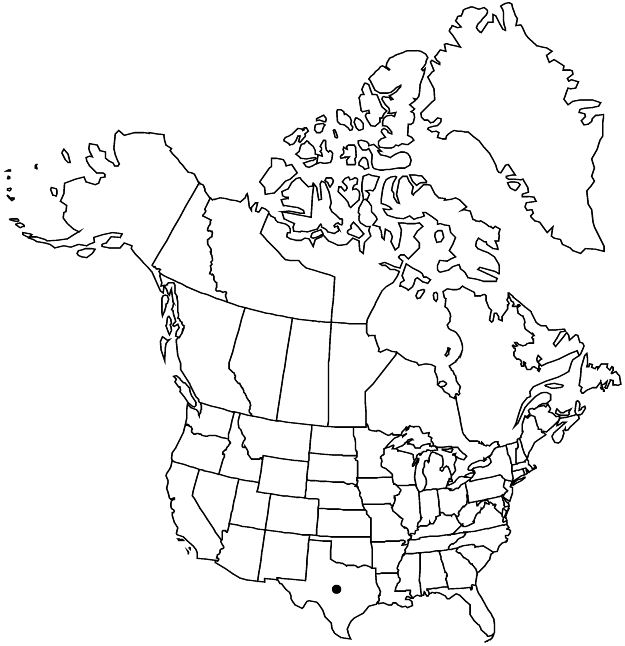Difference between revisions of "Krameria ramosissima"
Proc. Amer. Acad. Arts 17: 326. 1882.
imported>Volume Importer |
imported>Volume Importer |
||
| Line 53: | Line 53: | ||
|publication year=1882 | |publication year=1882 | ||
|special status= | |special status= | ||
| − | |source xml=https:// | + | |source xml=https://bitbucket.org/aafc-mbb/fna-data-curation/src/2e0870ddd59836b60bcf96646a41e87ea5a5943a/coarse_grained_fna_xml/V12/V12_1078.xml |
|genus=Krameria | |genus=Krameria | ||
|species=Krameria ramosissima | |species=Krameria ramosissima | ||
Latest revision as of 19:13, 5 November 2020
Shrubs, slightly mounding, 0.3–1 m. Stems erect, with long and short shoots, young branches strigose, light green, becoming gray with age, tips of long shoots thorny. Leaves: blade linear to ovate, on long shoots to 10 × 0.7–1 mm, on short shoots 3–5 × 0.7–2 mm, ape\× obtuse, surfaces strigose to villous, lacking glandular hairs. Inflorescences axillary, solitary flowers (on both long and short shoots, often appearing clustered in short shoots). Flowers: sepals ± cupped around petals and gynoecium, pink, ovate to oblong, 7–10 mm; secretory petals dark pink to brick red, 2–3 mm, with oil-filled blisters mostly on distal portions of outer surfaces; petaloid petals 5–6 mm, connate basally, distinct portions yellow or green basally, purple or dark pink tinged with lavender or purple distally, oblanceolate to reniform, 2–3 mm; stamens didynamous; ovary strigose; style greenish white. Capsules circular to cordate in outline, with longitudinal ridge on each face, 5–6 mm diam., sparsely to moderately strigose, spines stout, 0.5–1.5 mm, each glabrous, sometimes with minute serrations near tip. 2n = 12.
Phenology: Flowering Apr–May.
Habitat: Arid areas, sand, limestone, caliche, shale.
Elevation: 0–600 m.
Distribution

Tex., Mexico (Coahuila, Nuevo León, Tamaulipas).
Discussion
In Texas, Krameria ramosissima is known from counties along the Mexican border from the middle to lower Rio Grande valley.
Selected References
None.